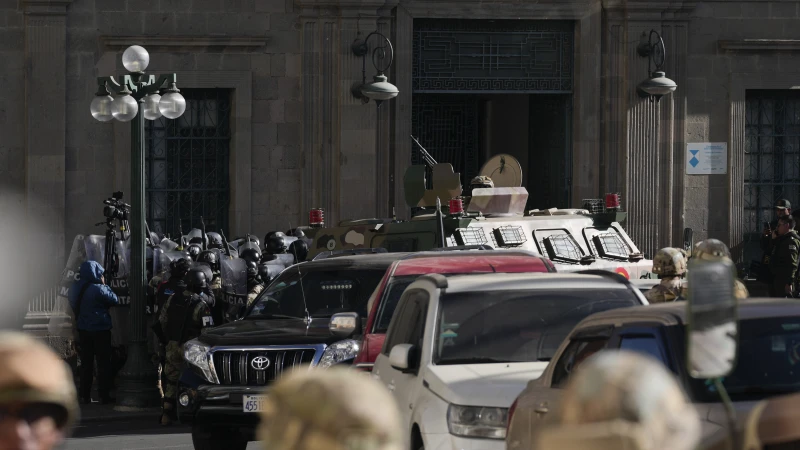Bolivia faced a tumultuous day on Wednesday as armored vehicles forcefully entered the doors of the government palace in La Paz, prompting serious concerns of a coup attempt. President Luis Arce denounced what he termed as “irregular” troop deployments in the capital and called for the preservation of democratic norms.

In a message posted on his social media account, Arce emphasized the importance of respecting democracy amidst the escalating crisis. The situation unfolded on Bolivian television screens, which broadcasted scenes of military tanks and personnel in military attire stationed outside the government palace.
Former Bolivian President Evo Morales, also active on social media, condemned the military movements in Murillo Square, describing it as a precursor to a coup in progress. General Commander of the Army, Juan José Zúñiga, present at the scene, expressed dismay over the deployment, labeling it an affront to democratic principles and decrying what he termed as attacks on democracy.
María Nela Prada, Minister of the Presidency and a senior Bolivian official characterized the events as an “attempted coup d’état,” stressing that the people remained vigilant to defend democratic institutions. Her remarks were broadcast on local television station Red Uno, amplifying the gravity of the situation across Bolivia.

The developments sparked widespread condemnation from regional leaders, including neighboring Chilean President Gabriel Boric, Honduran leadership, and former Bolivian heads of state. International bodies like the Organization of American States also expressed concern over the unfolding crisis.
Bolivia, a nation of 12 million people, has been grappling with mounting social unrest fueled by economic hardships. Once one of South America’s fastest-growing economies, Bolivia has faced severe economic downturns in recent years, exacerbating social tensions and protests.

Adding to the complexity is a significant political rift within Bolivia’s ruling party, the Movement for Socialism (MAS), led by President Arce and his former ally and predecessor, Evo Morales. The internal struggle within MAS ahead of the 2025 elections has further polarized Bolivian politics, contributing to the current instability.
As the situation unfolds, Bolivia remains on edge, with concerns mounting over the future of democracy and political stability in the country. The international community closely watches developments, urging calm and a peaceful resolution to the escalating crisis in La Paz.
AP



